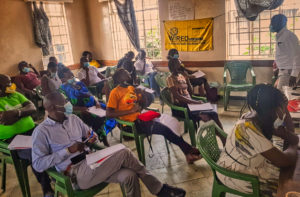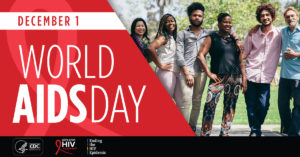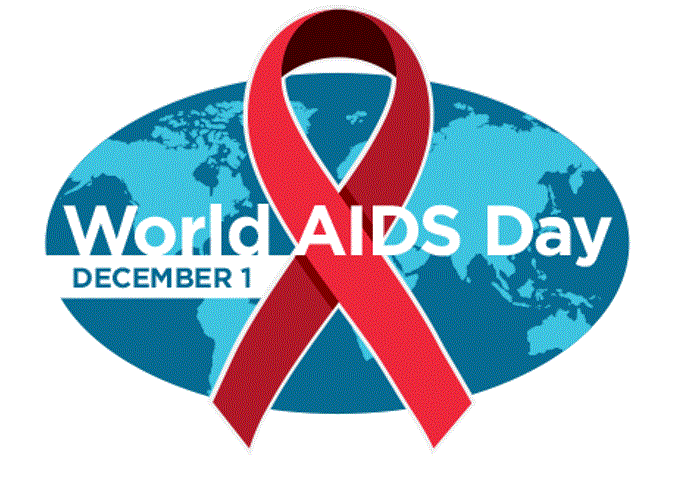WiRED International Marks World AIDS Day on December 1
Community Health Workers Key to Disease Control
By Allison Kozicharow; Edited by Elizabeth Fine
The theme of World AIDS Day 2021 is “End inequalities. End AIDS.” The tagline recognizes the growing disproportion in access to essential HIV services. Tragically, populations in Africa are most severely affected, where nearly one in every 25 adults lives with HIV, which accounts for more than two-thirds of the people living with HIV worldwide.
This year underserved communities again face greater risk for HIV infection and AIDS-related deaths as the COVID-19 pandemic disrupts HIV/AIDS prevention, testing, treatment and care services. Further, the World Health Organization (WHO) warns that HIV infection increases the risk of severe and critical COVID-19.
“I came across some business women. I approached them, and they agreed I could share with them the correct issues about COVID-19. One of the women came to me after I was done. She told me that her husband had been going for HIV testing, and the result had been negative. She requested a test because she was a known positive. I immediately went and brought the kits, being that I am a trained counsellor. I did the test and referred the patient to the facility for partner notification services.”
– Juliete Omollo, WiRED CHW in Kisumu, Kenya
 WHO reports that community health workers (CHWs) play a key role in the global fight against HIV/AIDS, especially to prevent mother-to-child HIV transmission. The community-based approach is exactly what WiRED International supports to combat not only HIV/AIDS but other diseases and health conditions. To this end and despite challenges prevented by COVID-19, WiRED launched our Community Health Worker Training Program in 2020 in Kenya, India, Nicaragua and Peru. As an example of the program’s success, in Kenya alone WiRED’s 12 CHWs treat more than 5,000 people every month!
WHO reports that community health workers (CHWs) play a key role in the global fight against HIV/AIDS, especially to prevent mother-to-child HIV transmission. The community-based approach is exactly what WiRED International supports to combat not only HIV/AIDS but other diseases and health conditions. To this end and despite challenges prevented by COVID-19, WiRED launched our Community Health Worker Training Program in 2020 in Kenya, India, Nicaragua and Peru. As an example of the program’s success, in Kenya alone WiRED’s 12 CHWs treat more than 5,000 people every month!
 WiRED offers a 15-module HIV/AIDS Series, which serves as a vital health education tool used by our CHWs for the populations they benefit. By assessing needs and referring patients to facilities that can provide specialized treatment or monitoring, CHWs are improving community health and stemming the spread of HIV/AIDS and devastating diseases such as COVID-19 and malaria. As WHO envisioned, CHWs are becoming a vital link between underserved populations and formalized health care.
WiRED offers a 15-module HIV/AIDS Series, which serves as a vital health education tool used by our CHWs for the populations they benefit. By assessing needs and referring patients to facilities that can provide specialized treatment or monitoring, CHWs are improving community health and stemming the spread of HIV/AIDS and devastating diseases such as COVID-19 and malaria. As WHO envisioned, CHWs are becoming a vital link between underserved populations and formalized health care.
World AIDS Day encourages everyone to show solidarity with those who are living with HIV and to promote awareness worldwide. For anyone who wants to get educated about HIV/AIDS, WiRED’s HIV/AIDS Series is a good place to start.
WiRED, which has been providing HIV/AIDS training programs since 2001, currently offers a 15-module health education series on the disease. The cost-free, publicly available training units cover:
- Diagnosis
- Living with HIV
- Related infections and cancers
- Treatment options
- Caring at home for a loved one with AIDS
- HIV information for children and adolescents
- Prevention of transmission between mother and child
- Proper nutrition for people who are HIV positive
What is HIV?
Spread through certain body fluids, HIV is a virus that attacks the body’s immune system, specifically the CD4 cells, often called T cells. The virus was identified in 1984, and since then more than 36 million people have died from it, which makes it one of the most destructive pandemics ever recorded.
If HIV is left untreated, the most serious phase of infection leads to AIDS, along with related diseases and cancers. However, people can live a successful and healthy life if they are taking antiretroviral therapy drugs. This therapy option reduces the amount of virus in the body and lowers the person’s chances of transmitting the virus.


